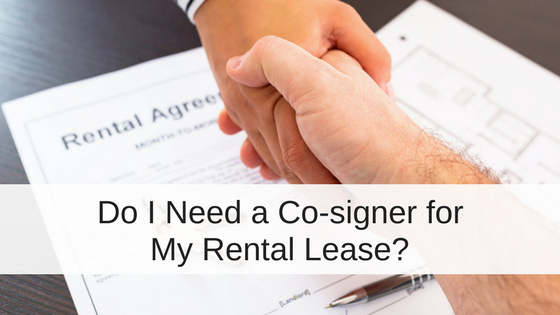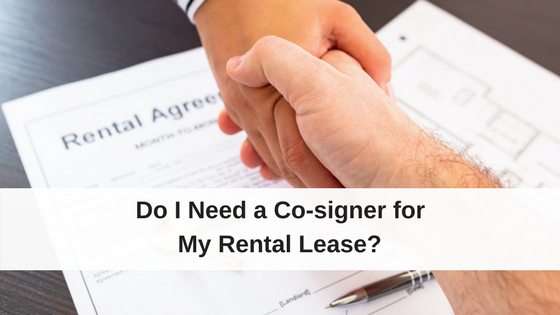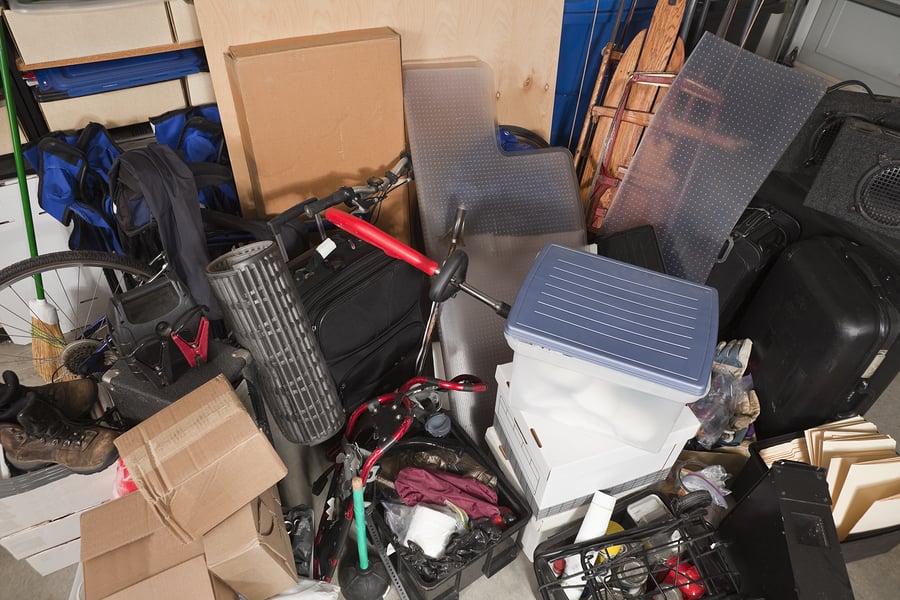
Sometimes a landlord or property manager will ask a rental applicant to have a co-signer sign the lease agreement.
Sometimes referred to as a guarantor, a co-signer signs the lease along with the tenant and agrees to pay the rent if the actual renter is unable to for any reason. Co-signers are not expected to live at the property or deal directly with management but they will be financially responsible for unpaid rent, damage or fines that a renter does not pay.
Why would a renter need a co-signer?
Not every rental requires a co-signer but here are some situations where a co-signer will help your score your next rental property.
Lack of rental history.
Before agreeing to rent to you, your new landlord wants to see that a potential renter has experience following rental lease terms and will pay rent on time. One way a landlord verifies this information is by checking with your past landlords. They want to see if you ever paid rent late, caused any property damage, or violated any lease terms.
If you have never rented a property before, your new landlord will have no idea what kind of renter you will be. That’s where a co-signer comes in. A co-signer provides an additional layer of assurance to your landlord if you turn out to be an irresponsible renter. The landlord can legally hold both the renter and co-signer financially responsible for unpaid rent, fees, and property damage.
Poor credit history.
A landlord will look at your credit report to understand your financial responsibility and evaluate your bill paying behavior. If your credit report shows a high debt-to-income ratio, a history of late payments, or unpaid collections, your future landlord may deny your rental application. He would be concerned about your ability to pay rent on time based on your credit history.
If you know you have a low credit score or information on your credit report that makes you seem irresponsible with your finances, consider asking if you can have a co-signer. The trick is to be upfront with your future landlord about what they will find on your credit report.
Try saying something like, “When you check my credit report you will see that I had a couple collections a few years ago but I paid those off and am in the process of rebuilding my credit. Would you be open to discussing the option of a co-signer for this lease to reassure you that I will be an excellent tenant who will pay my rent on time?”
College students.
College students who want to live off-campus might not meet the income requirements in order to rent their own apartment. If a parent is paying for a student’s housing, the landlord could require that the parent co-sign the lease agreement. (I did this when I was in college – thanks, Mom!) The co-signer will probably need to submit proof of income and complete a credit background check, proving that they can afford to pay for their student’s rent on top of their own housing expenses.
Co-signers need to get screened too.
Before you ask someone to be a co-signer for a rental lease, make sure they understand what they are committing to. Essentially, the co-signer needs to be able to pay any rent, fees, or fines related to property damage, if required by the landlord.
Every person that signs a rental lease needs to provide verifiable income and references, as well as consenting to a credit and background check. A co-signer will be useless protection unless you can prove that they are financially responsible and have the means to cover rent if a tenant cannot.
Just because a tenant prospect is a first-time renter or doesn’t have a qualifying credit score, doesn’t mean they will be a bad tenant. For added protection though, if a rental applicant does not meet the screening criteria, a landlord can ask for a co-signer or guarantor who will be financially and legally obligated to pay rent and cover the cost of tenant caused property damage. Co-signers are typically parents or family members with verifiable income and great credit.







Looking forward to reading more. Great forum post. Much obliged.